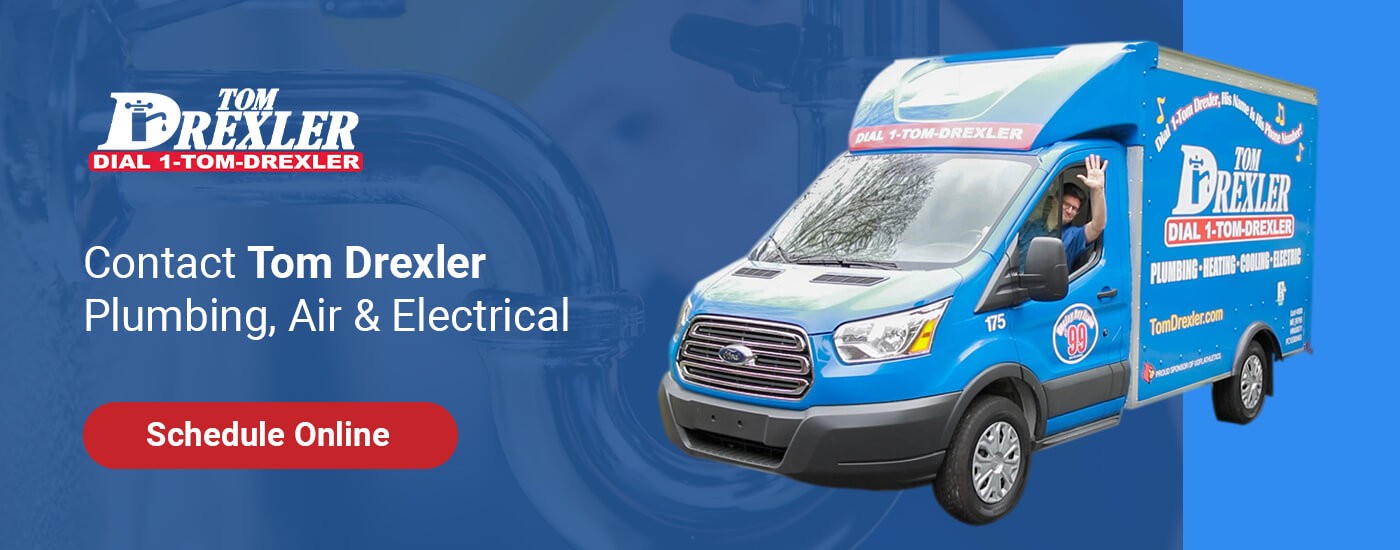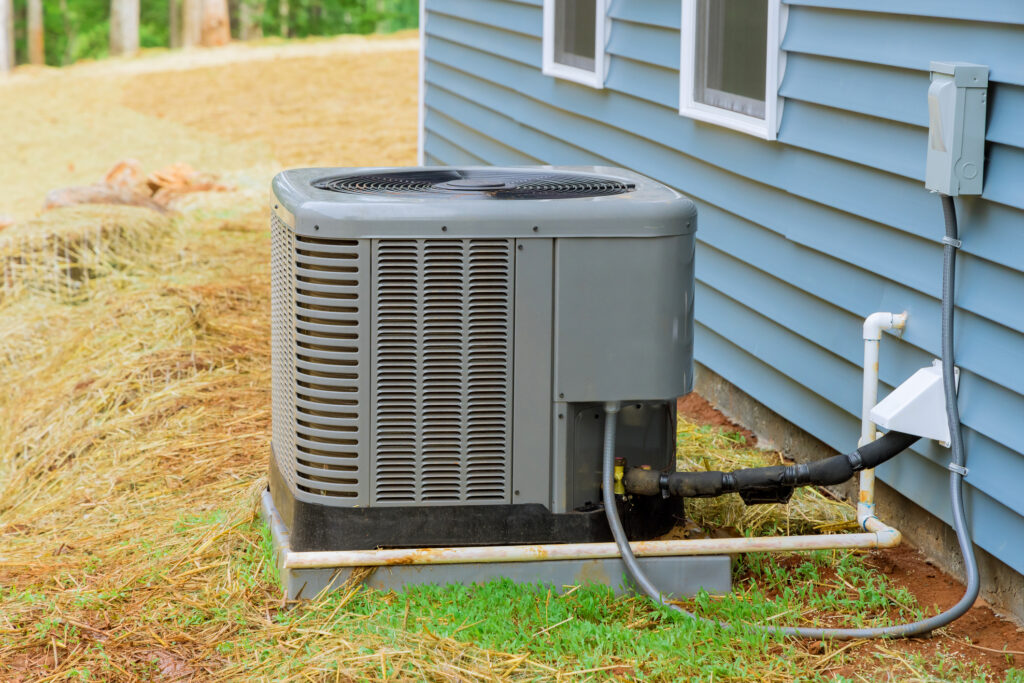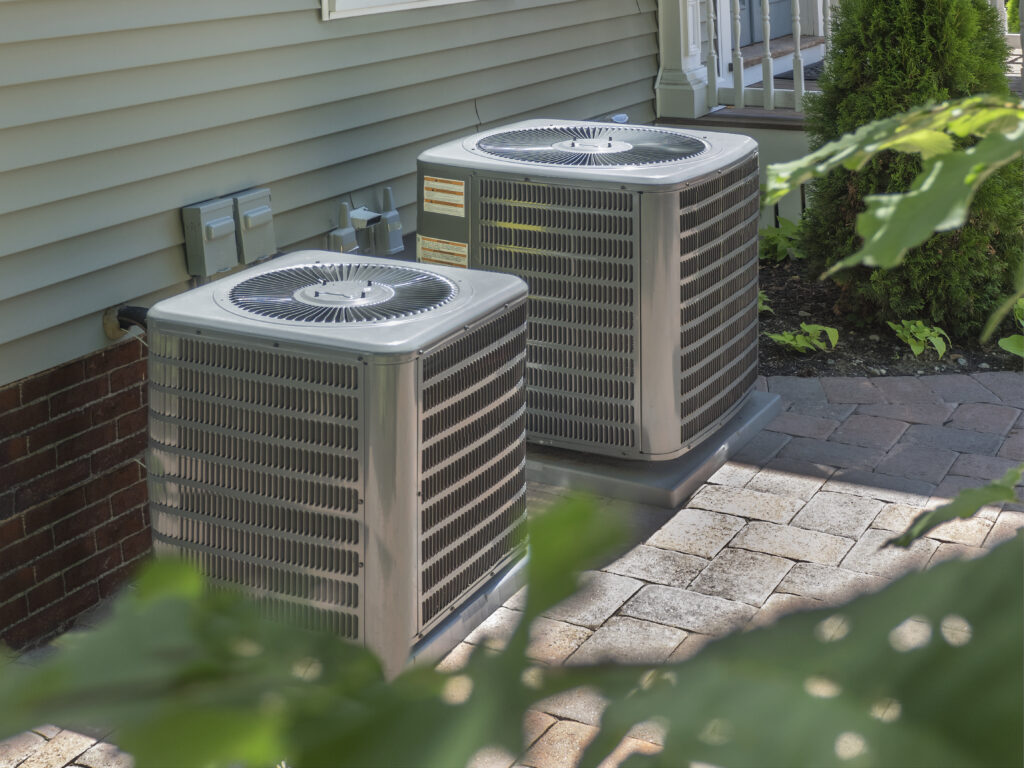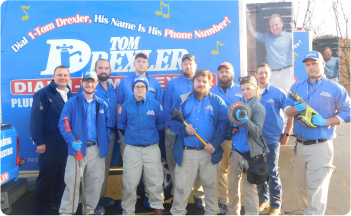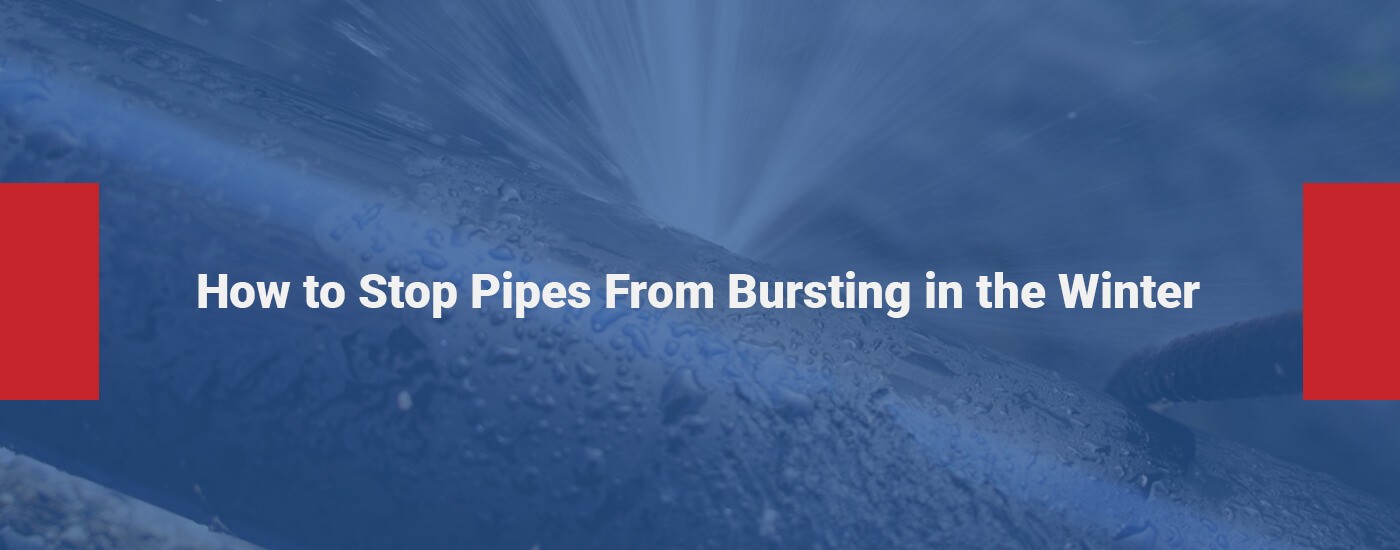
As winter approaches and snow begins to fall, homeowners ensure they stay warm by cranking the heat up and bundling in layers and blankets. Keeping the house warm is a significant priority, though sometimes internal structures get forgotten. When the temperature drops, the pipes around your home are susceptible to freezing and bursting if not appropriately handled.
Learn about the issues with pipes freezing and how you can prevent them from bursting.
Why Do Pipes Burst in Winter?
A known property of water is that it swells as it freezes. When the temperature drops in the winter, it’s natural for water to expand and freeze in pipes. While many people think this expansion is what causes water pipes to burst in winter, that’s not the case.
When water freezes in pipes, the ice expands, blocking the rest of the pipe and pushing any remaining water in the pipe towards the faucet. The blockage causes a significant buildup of pressure between the ice in the pipe and the faucet. Pipes burst when they can no longer withstand this pressure. Often, the pipe area that bursts has little to no water or ice in it.
Almost any type of plumbing pipe has the chance of bursting. Whether you have PEX, PVC or copper pipes, they could burst if the water freezes and expands enough. While steel pipes are stronger than the other types, they are also susceptible to bursting with a high enough pressure built within the pipe.
How Long Does It Take for Pipes to Freeze and Burst?
There is no set time for pipes freezing and bursting. Water freezes at 32 degrees Fahrenheit, so the water in pipes can start freezing once it gets cold enough. How long it takes for pipes to freeze and burst depends on how protected they are. If pipes are out in the open, they can freeze faster than pipes with more insulation. Pipes with more protection or indoor pipes usually start freezing when temperatures are 20 degrees F and below.
Under those conditions, pipes can freeze any time, from 3 to 8 hours. The amount of time before pipes burst is unmeasurable. When the pipes aren’t in use, pressure can build and eventually make the pipes burst.
How to Prevent Pipes From Bursting in Winter
If you’re afraid your pipes could burst during the winter, you can take several precautions to prevent pipes from freezing and bursting in the winter:
1. Drain Water From Unused Pipes
If you have a swimming pool or used the hose frequently over the summer, there’s probably water sitting in the supply line. Once fall comes, you’re using the water infrequently, and you aren’t using it at all by winter. Even though you haven’t used the supply line in a while, water can remain in the pipe. To prevent outside pipes from bursting, ensure you remove all hoses and drain them, then open the valves to drain water from the pipe.
Throughout the season, keep the valves open so any remaining water that does happen to freeze in the pipes doesn’t cause them to burst.
2. Add Insulation
Keeping your pipes warm is one of the most important ways to keep your pipes from freezing. You can add insulation directly to the pipes using a sleeve or place insulation around the walls. Insulation will ensure the temperature around the pipe stays above 32 degrees.
3. Turn off the Water
If you’re going to be away from home for an extended time, turning off the water can prevent your pipes from bursting. Without a water source, pipes can’t have enough water to block them, so pipes can’t burst if the water is turned off.
4. Keep Faucets Running
Another way to prevent your pipes from freezing is to let your faucet run. Letting water trickle is enough for your pipes to continue working. Keeping the faucets running ensures the line stays open. Flowing water prevents pipes from bursting because moving water is less likely to freeze.
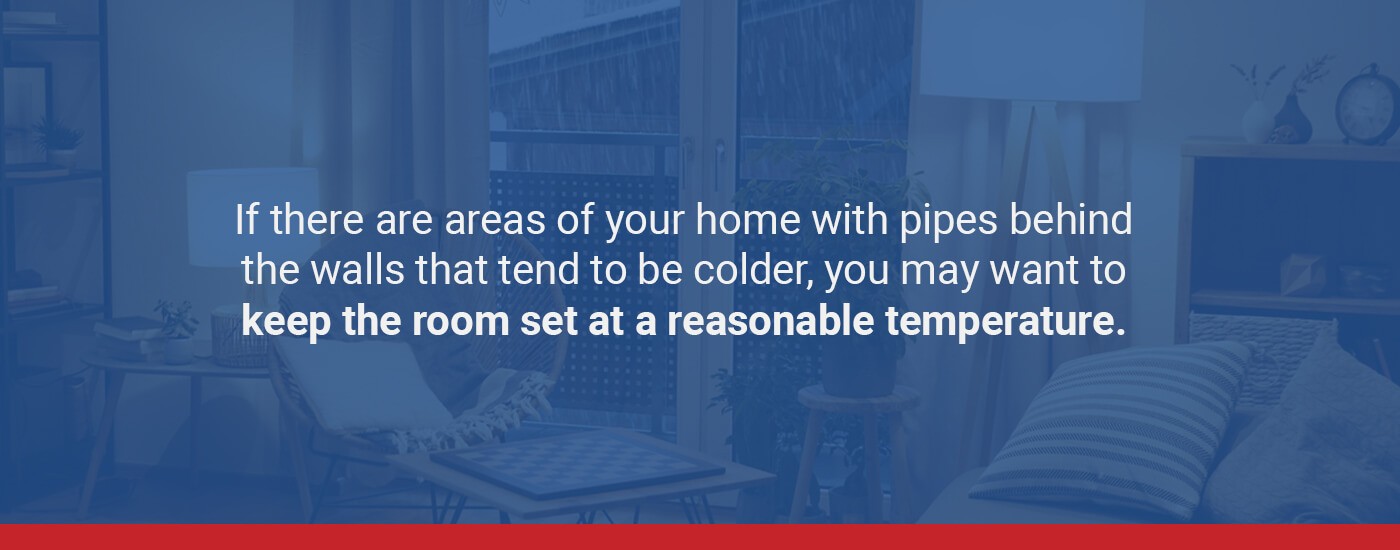
5. Keep Typical Cold Areas in Your Home Warm
Pipes are throughout your home’s structure. If there are areas of your home with pipes behind the walls that tend to be colder, you may want to direct heat to the room or keep the room set at a reasonable temperature. By keeping the areas warm, the pipes’ temperature will stay above freezing point.
6. Seal Cracks That Could Let in Cold Air
Cold air can affect your pipes more than you may expect. Even with minor cracks and air leaks, your pipes can freeze if the air is cold enough. Look for small gaps near pipes, dryer vents and electrical wiring. You can quickly and easily fill the cracks with caulk or insulation. Sealing the cracks will prevent the air from affecting your pipes and keep pests out of your home.
7. Leave Cabinets Open
Pipes are often behind cabinets. With the doors closed in winter, cabinets and the walls behind them can get cold. You can leave your kitchen and bathroom cabinet doors open to let warm air circulate the plumbing. If you have kids and store any harmful cleaning supplies in lower cabinets, ensure you move the supplies out of reach.
What to Do When Your Pipes Freeze
If you turn on your faucets and only a trickle of water comes out, you may have frozen pipes. To unfreeze your pipes, you’ll want to find the source and apply heat to melt the ice. You can use an electric heating pad, a portable space heater, a hairdryer or wrap hot towels around the pipes to begin melting the ice. Ensure you keep the faucets open during the defrosting process so the water can run through. Running water will also help speed up the ice melting in your pipes.
When your frozen pipes are located in places you can’t reach, you should call a plumbing service. Plumbers have the training and knowledge for unfreezing pipes in hard-to-reach areas. If you have one frozen pipe, there could be more. You can take precautions and have a plumber check your other pipes to ensure they aren’t frozen. By taking action as soon as possible, you can prevent your pipes from bursting.
Contact Tom Drexler Plumbing, Air & Electric
If you need help preventing your pipes from freezing or need to repair burst pipes, Tom Drexler Plumbing is here to help. You can count on the professionals to keep your home plumbing safe. Since 1982, Tom Drexler Plumbing has been providing exceptional, customer-first service. We are a short phone call away when you need help unfreezing your pipes during the winter in Louisville, Kentucky, and the Southern Indiana area. You can schedule a service online or call us at (502) 456-5982 today!
